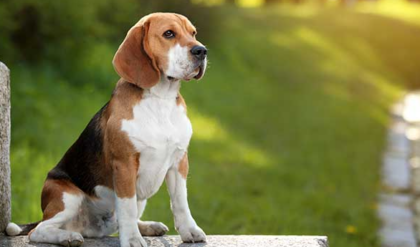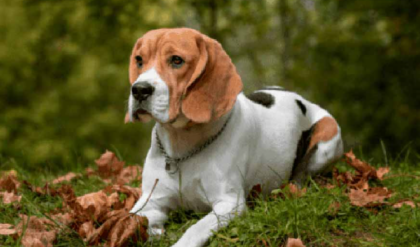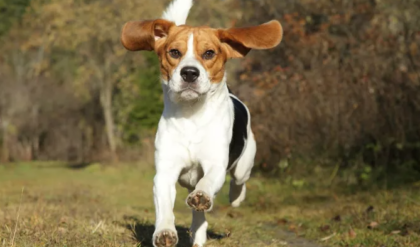Bringing a new puppy into your home is an exciting and rewarding experience. However, it also comes with significant responsibilities. Proper care and attention during the early stages of a puppy’s life are crucial for their physical and emotional development. This comprehensive guide will walk you through the essential aspects of puppy care, from health and protection to training and socialization.

Preparing Your Home for a New Puppy
Before bringing your new furry friend home, it’s essential to prepare your living space to ensure a safe and comfortable environment for your puppy. This preparation involves several key steps:
Puppy-Proofing Your Home
Puppies are naturally curious and will explore every nook and cranny of their new environment. To keep them safe, you’ll need to puppy-proof your home:
Remove or secure any potentially dangerous items such as loose wires, toxic plants, and small objects that could be swallowed. Use baby gates to restrict access to certain areas of your home, especially staircases or rooms with hazards.
Setting Up a Designated Puppy Area
Create a specific area for your puppy to call their own:
Choose a quiet, draft-free spot for your puppy’s bed or crate. This area should be easily accessible but away from high-traffic zones in your home. Ensure the space is large enough for your puppy to move around comfortably but small enough to feel cozy and secure.
Essential Supplies for Your New Puppy
Stock up on necessary items before bringing your puppy home:
- Food and water bowls
- High-quality puppy food
- Collar and leash
- Identification tags
- Crate or bed
- Toys for chewing and play
- Puppy pads for house training
- Grooming supplies
Creating a Puppy Schedule

Establish a routine for feeding, potty breaks, playtime, and sleep:
Puppies thrive on consistency, so creating a daily schedule will help them adjust to their new home more quickly. Plan regular mealtimes, potty breaks every few hours, dedicated play sessions, and a consistent bedtime routine.
Choosing a Veterinarian
Research and select a reputable veterinarian in your area:
Schedule an initial check-up for your puppy within the first few days of bringing them home. This will allow you to establish a relationship with your vet and ensure your puppy is healthy from the start.
Health and Protection
Ensuring your puppy’s health and safety is paramount. This section covers essential aspects of puppy healthcare:
Vaccinations and Regular Check-ups
Vaccinations are crucial for protecting your puppy against various diseases:
Work with your veterinarian to establish a vaccination schedule. Core vaccines typically include those for distemper, parvovirus, hepatitis, and rabies. Your vet may recommend additional vaccines based on your puppy’s lifestyle and local health risks.
Regular check-ups allow your vet to monitor your puppy’s growth and development:
Schedule routine visits to track your puppy’s weight, check for any health issues, and address any concerns you may have about your puppy’s well-being.
Deworming and Parasite Prevention
Internal and external parasites can pose significant health risks to puppies:
Follow your vet’s recommendations for deworming schedules. This typically involves regular treatments for common internal parasites like roundworms and hookworms. Use appropriate flea and tick prevention methods as advised by your veterinarian.
Microchipping and Identification
Ensure your puppy can be identified if they ever get lost:
Consider microchipping your puppy for permanent identification. This simple procedure involves inserting a tiny chip under your puppy’s skin. Always keep your contact information up to date with the microchip registry. In addition to microchipping, make sure your puppy wears a collar with identification tags containing your contact information.
Nutrition and Feeding
Proper nutrition is essential for your puppy’s growth and development:
Choose a high-quality puppy food appropriate for your puppy’s breed and size. Follow feeding guidelines based on your puppy’s age and weight, but be prepared to adjust portions as needed. Avoid feeding your puppy human food, as some can be harmful or lead to obesity.
Grooming and Hygiene
Establish good grooming habits early:
Brush your puppy regularly to keep their coat healthy and reduce shedding. Bathe your puppy as needed, using puppy-safe shampoo. Trim your puppy’s nails regularly and clean their ears to prevent infections. Brush your puppy’s teeth daily to promote good oral health.
Training and Socialization
Proper training and socialization are crucial for raising a well-behaved and confident dog:
Basic Obedience Training
Start with fundamental commands:
Teach your puppy basic commands such as sit. Use positive reinforcement techniques, rewarding your puppy with treats, praise, or play for good behavior. Keep training sessions short and fun to maintain your puppy’s attention and enthusiasm.
House Training
Establish a consistent routine for potty training:
Take your puppy out frequently, especially after meals, naps, and playtime. Choose a designated potty area and use a specific command to encourage your puppy to eliminate. Reward your puppy immediately after they’ve done their business in the appropriate spot. Be patient and consistent, as house training can take several weeks or even months.
Crate Training
Introduce your puppy to their crate gradually:
Make the crate a positive space by placing comfortable bedding and toys inside. Never use the crate as punishment. Start with short periods in the crate and gradually increase the duration as your puppy becomes more comfortable.

Leash Training
Teach your puppy to walk politely on a leash:
Start in a quiet area with minimal distractions. Use positive reinforcement to encourage your puppy to walk beside you. Gradually introduce more distractions and longer walks as your puppy improves.
Socialization
Expose your puppy to various people, animals, and environments:
Introduce your puppy to different sights, sounds, and textures in a positive manner. Arrange playdates with other vaccinated puppies or friendly adult dogs. Enroll in puppy socialization classes to provide structured socialization opportunities.
Exercise and Play
Regular exercise and playtime are essential for your puppy’s physical and mental well-being:
Daily Walks
Introduce your puppy to daily walks:
Start with short walks and gradually increase the duration as your puppy grows. Be mindful of your puppy’s energy levels and avoid overexertion, especially in hot weather.
Interactive Playtime
Engage in regular play sessions with your puppy:
Use a variety of toys to keep playtime interesting. Rotate toys to prevent boredom. Incorporate training exercises into playtime to reinforce obedience skills.
Mental Stimulation
Provide activities that challenge your puppy’s mind:
Use puzzle toys and treat-dispensing toys to keep your puppy mentally engaged. Teach new tricks and commands to stimulate your puppy’s cognitive abilities.
Safe Outdoor Exploration
Allow supervised outdoor exploration:
Ensure your yard is securely fenced. Remove any toxic plants or hazardous objects from your outdoor space. Supervise your puppy closely during outdoor playtime to prevent accidents or escapes.
Appropriate Exercise Levels
Tailor exercise to your puppy’s age and breed:
Avoid high-impact activities that could strain your puppy’s developing joints. Consult with your veterinarian about appropriate exercise levels for your specific puppy.
Nutrition and Feeding
Proper nutrition is crucial for your puppy’s growth and development:
Choosing the Right Puppy Food
Select a high-quality puppy food:
Look for foods specifically formulated for puppies. Choose a brand that meets AAFCO (Association of American Feed Control Officials) standards. Consider your puppy’s breed size when selecting food, as large breed puppies have different nutritional needs than small breeds.
Feeding Schedule and Portions
Establish a consistent feeding routine:
Feed your puppy several small meals throughout the day. Gradually transition to fewer, larger meals as your puppy grows. Follow the feeding guidelines on the food packaging, but adjust portions based on your puppy’s growth and body condition.
Treats and Snacks
Use treats wisely in training and bonding:
Choose healthy, puppy-appropriate treats. Limit treats to no more than 10% of your puppy’s daily caloric intake. Avoid giving human food as treats, as some can be harmful to dogs.
Monitoring Growth and Weight
Keep track of your puppy’s growth:
Weigh your puppy regularly and record their progress. Consult with your veterinarian if you have concerns about your puppy’s growth rate or body condition.
Special Dietary Considerations
Address any specific nutritional needs:
Some puppies may have food allergies or sensitivities. Work with your veterinarian to identify and manage any dietary issues. Consider supplements only if recommended by your veterinarian.
Behavioral Issues and Problem Solving
Addressing potential behavior problems early is key to raising a well-adjusted dog:
Separation Anxiety
Help your puppy feel comfortable when alone:
Gradually accustom your puppy to being alone for short periods. Provide engaging toys and activities to keep them occupied. Avoid making a big fuss when leaving or returning home.
Excessive Barking
Teach your puppy when it’s appropriate to bark:
Identify the cause of the barking and address the underlying issue. Use positive reinforcement to reward quiet behavior. Teach to help manage barking.
Chewing and Destructive Behavior
Provide appropriate outlets for your puppy’s chewing instincts:
Offer a variety of safe chew toys. Supervise your puppy and redirect them to appropriate chew items when necessary. Use bitter apple spray or other deterrents on items you don’t want your puppy to chew.
Jumping on People
Teach your puppy polite greetings:
Ignore jumping behavior and reward your puppy when all four paws are on the ground. Teach an alternative behavior, such as sitting, for greetings. Consistently enforce rules about jumping with all family members and visitors.
Resource Guarding
Prevent possessiveness over food, toys, or other items:
Practice handling your puppy’s food bowl and toys from an early age. Teach your puppy to drop it on command. If resource guarding becomes a serious issue, consult with a professional dog trainer or behaviorist.
Conclusion
Caring for a puppy is a significant responsibility that requires time, patience, and dedication. By focusing on proper health care, nutrition, training, socialization, and addressing potential behavioral issues, you can help your puppy grow into a happy, healthy, and well-adjusted adult dog. Remember that every puppy is unique, so be prepared to adapt your care routine to meet your individual puppy’s needs. With love, consistency, and proper care, you’ll build a strong bond with your new furry family member and set the foundation for a lifetime of companionship.





